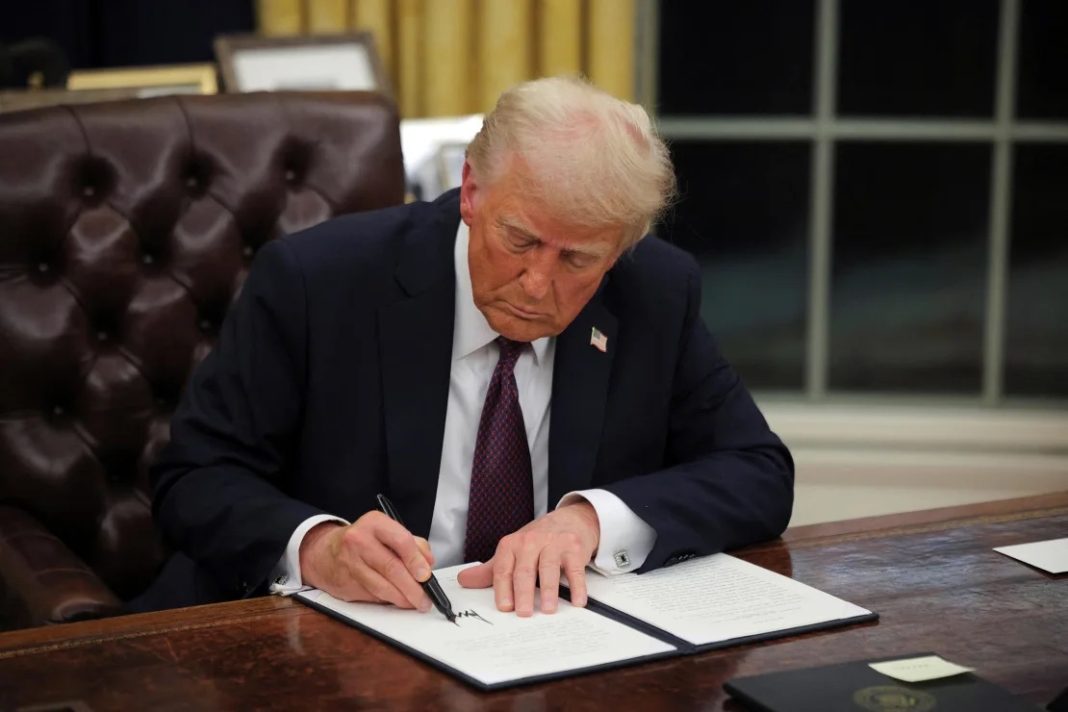WASHINGTON D.C, USA – U.S. President Donald Trump has signed an executive order aimed at overhauling federal elections, which includes controversial provisions requiring voters to provide proof of citizenship and limiting when states can accept mail-in ballots.
The order, titled “Preserving and Protecting the Integrity of American Elections,” was signed on Tuesday, March 25, 2025, at the White House.
Trump argued that the measure was necessary to combat election fraud, a term he has used repeatedly.
“Election fraud. You’ve heard the term. We’re going to end it, hopefully. At least this will go a long way toward ending it,” Trump said during the signing ceremony.
The executive order mandates that states require proof of citizenship from voters, threatening to withhold federal funding from those that do not comply.
Currently, U.S. law prohibits non-citizens from voting in federal elections, and while states require a common voter registration form, they do not require documentary proof of citizenship, relying instead on self-certification under penalty of perjury.
The order also seeks to prevent states from accepting mail-in ballots that are received after Election Day, a provision that would affect 18 states currently allowing late-arriving ballots if postmarked by Election Day.
States that fail to comply with this directive could face a loss of federal funding.
The move has been met with criticism, particularly from experts and civil rights groups who warn it could disenfranchise millions of Americans.
Many voters, especially low-income individuals and communities of color, may not have easy access to a passport or enhanced driver’s license, which are often required for voter ID.
Democrats have also expressed concerns about the potential impact of these changes on voter turnout.
Experts have pointed out that claims of widespread illegal voting, including Trump’s accusations of “millions” of illegal votes in his 2016 campaign, have been largely unsubstantiated.
Studies show that instances of non-citizens voting in U.S. elections are exceedingly rare.
The legal enforceability of the order is expected to be challenged in court. States are constitutionally empowered to manage their own elections, and legal experts argue that Trump’s executive order may overstep federal authority.
“The president cannot override a statute passed by Congress that says what is required to register to vote on the federal voter registration form,” said Wendy Weiser from the Brennan Center for Justice.
UCLA law professor Rick Hasen also raised concerns about the order’s potential to shift significant power from state governments to the federal government, noting that elections have traditionally been administered by the states.







